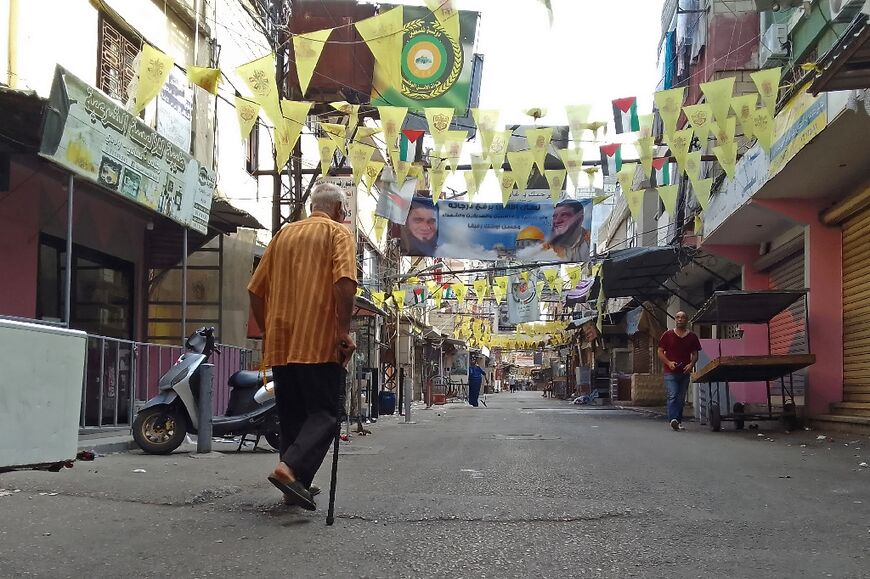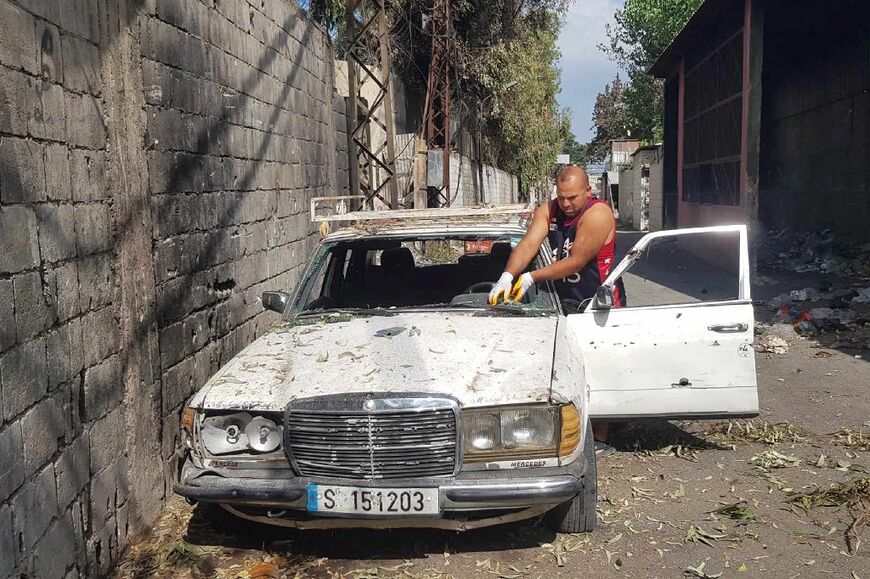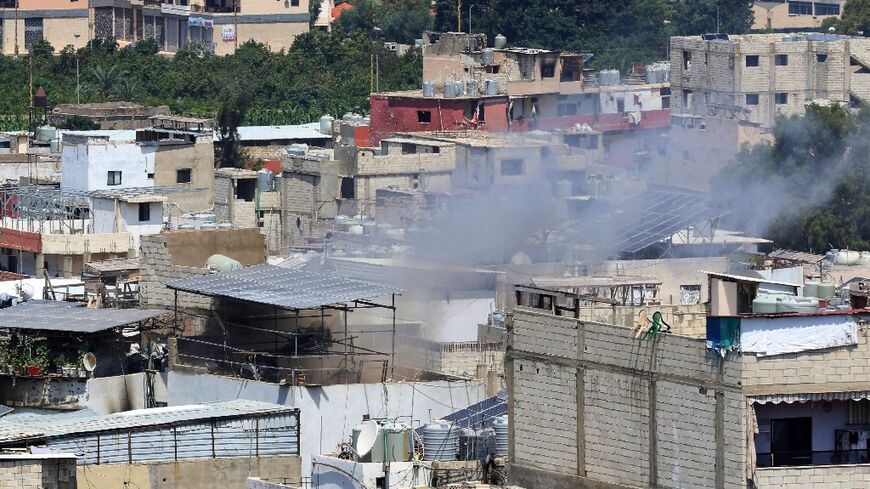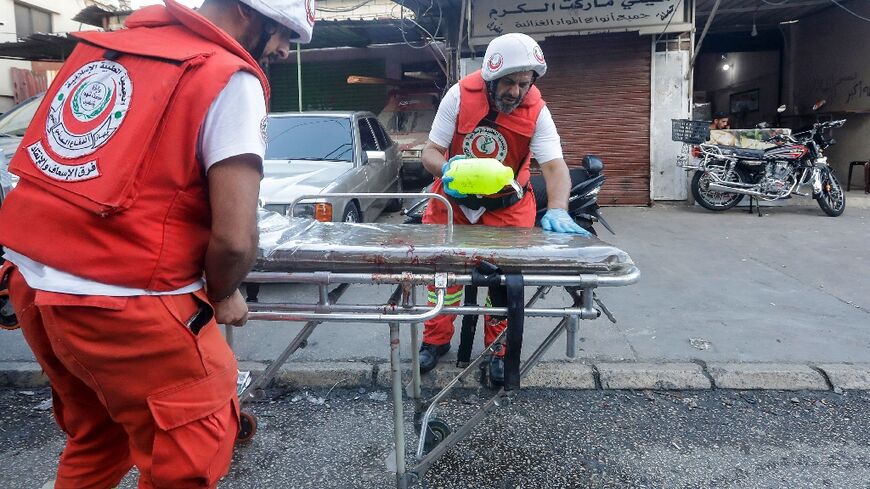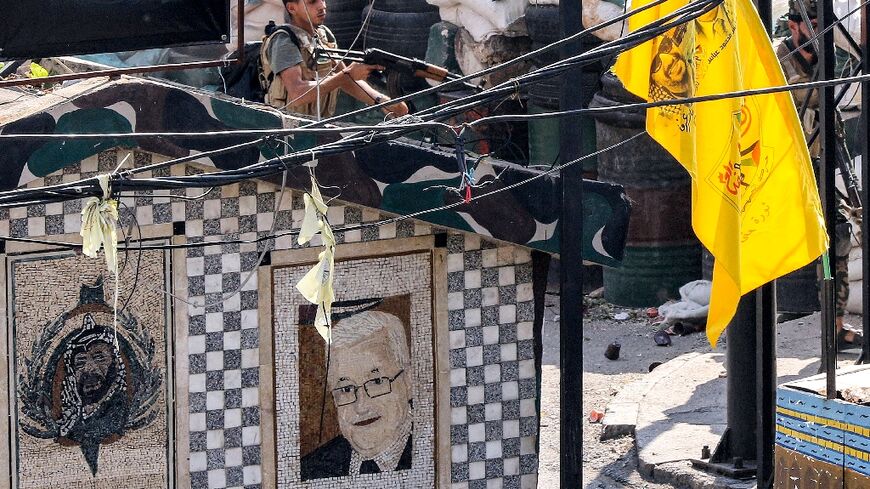Residents fearful as clashes rock Palestinian camp in Lebanon
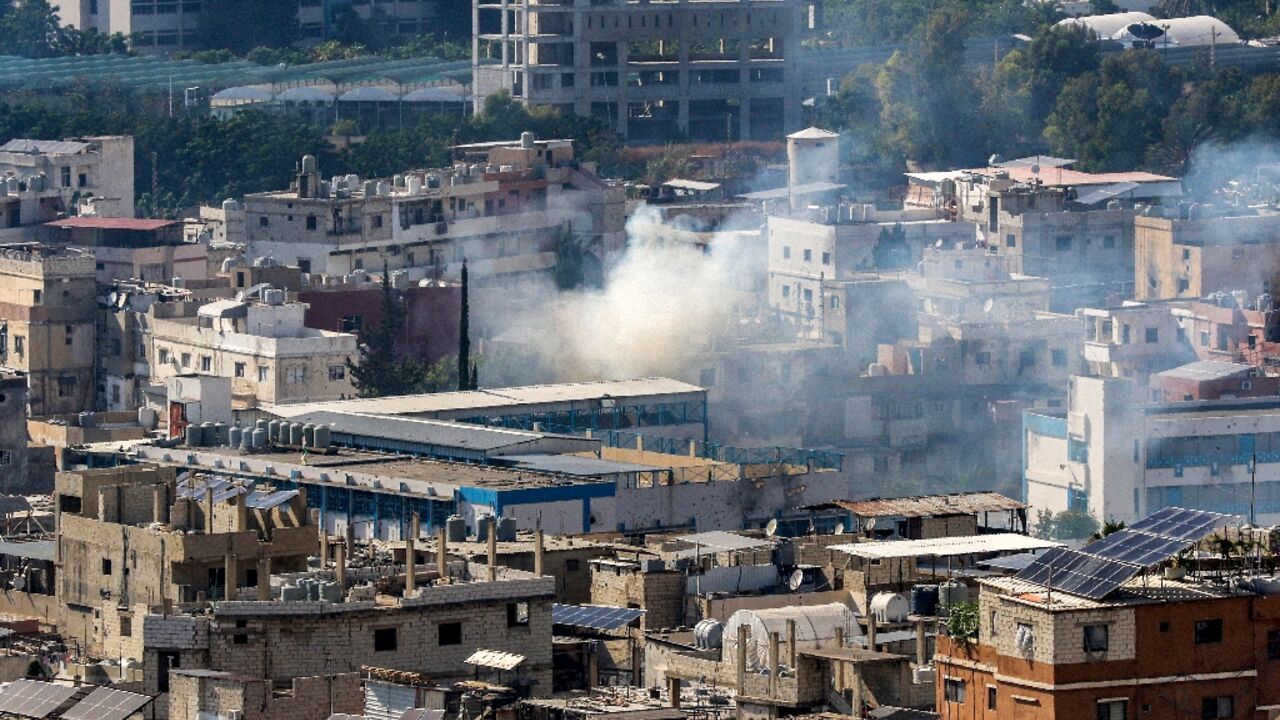
Fruit and vegetable seller Ismail Akkawi had no choice but to brave days of intermittent but deadly fighting in Lebanon's biggest Palestinian refugee camp in order to make ends meet.
The produce market at the heart of the restive Ain al-Helweh camp -- in the southern coastal city of Sidon -- is usually bustling with vendors, but few have ventured out since clashes broke out in the camp late Saturday.
"I have to leave the house, despite the horrific circumstances for selling vegetables," said Akkawi, who is in his sixties.
If the violence continues, "who will put food on the table for me and my family?" he asked.
Outbreaks of violence are common in the camp, but 11 people have been killed in the current flare-up -- the worst in years, pitting members of Palestinian president Mahmud Abbas's Fatah movement and Islamist militants.
It is not yet known why the latest clashes broke out.
Ain al-Helweh is home to more than 54,000 registered refugees. It was created for Palestinians who were driven out or fled during the 1948 war that coincided with Israel's creation.
Thousands of Palestinians who sought refuge from Syria's civil war have also joined the camp in recent years.
Palestinian factions said they had agreed on a truce on Sunday but it failed to hold, and fighting continued on Monday and Tuesday with automatic weapons and rockets being used.
Deserted buildings stand riddled with bullet holes on the front lines, while charred cars litter the camp's southern district of Hittin, which witnessed clashes and shelling.
- Fear of shortages -
Bread vendor Mukhtar, 62, said panicked residents were stocking up on supplies.
"People are buying two bags of bread, fearing shortages due to the security situation," he said, declining to give his surname.
The fighting has prompted the United Nations to suspend its activities in Ain al-Helweh, while shops and public institutions have also closed in Sidon, the largest city in southern Lebanon.
"Arrangements are under way to establish a serious ceasefire," senior Fatah official Mounir Makdah told AFP on Tuesday.
Palestinian security forces are working "to remove the gunmen from the streets and form an investigation committee" to identify those responsible for the violence, he added.
"All factions have collectively decided to hold perpetrators of breaches and security incidents to account," Makdah said.
Tiny Lebanon hosts an estimated 250,000 Palestinian refugees, according to UNRWA, the UN agency for Palestinian refugees.
Most live in one of Lebanon's 12 official camps, and face a variety of legal restrictions, including on employment.
By long-standing convention, the Lebanese army does not enter Palestinian refugee camps, leaving the factions themselves to handle security.


